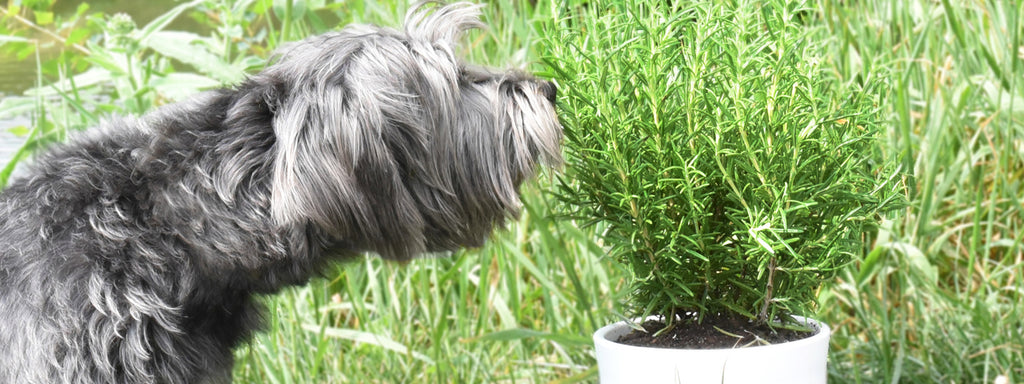Herbs that are Safe for Dogs

The next time you are throwing together a salad or topping your pizza with fresh herbs, consider adding a small amount of these dog-safe herbs to your pet’s food bowl!
Parsley
Parsley may be a garnish on your plate, but it has many uses for improving your dog’s health. This dog-safe herb is full of vitamin K, chlorophyll, vitamin C, and vitamin A. The most popular use of parsley for dogs is as a breath freshener. However, parsley can also ease the effects of arthritis and urinary tract infections, as the herb acts as a powerful diuretic while vitamin K reduces inflammation. You can give your dog 1 tsp of fresh parsley per 20 lbs of body weight each day.
Oregano
Oregano is a powerful antioxidant that has also been shown to have antibacterial properties. While too much oregano can cause digestive distress in dogs, small doses are perfectly safe.
The active ingredients in oregano are carvacrol and thymol, both of which have been shown to powerfully kill bacteria. The most potent form of oregano is oil, and 1 – 2 drops can be added to a teaspoon of coconut oil and given to your dog 1 – 3x per day.
In addition to fighting bacteria, small dosages of oregano can be used to soothe upset stomachs and relieve gas. If oregano oil is not available, an oregano tea can be made by steeping 2 teaspoons of fresh oregano in boiling water for 10 minutes and adding a tablespoon of this tea to your dog’s food or water.
Rosemary
Rosemary is commonly found on dog food and treat labels because this herb is a strong – and safe – preservative due to its antimicrobial qualities. However, in addition to keeping your dog’s food fresh, rosemary is a powerful antioxidant, supports cardiac health, aids digestion, and can repel fleas and ticks. The dosage for rosemary is 1/8 tsp per 20 lbs of body weight, up to 3x daily.
Peppermint
Like the other herbs on this list, peppermint is a nutritional powerhouse. Full of Vitamin A, Vitamin C, calcium, copper, folate, iron, manganese, magnesium, and zinc, peppermint also aids digestion and freshens breath. More recently, researchers have discovered that peppermint can protect both humans and animals that are undergoing chemotherapy. Peppermint can be baked into treats, sprinkled into dog food, or added as a tea to your dog’s water. Since there is no reported toxicity for peppermint and dogs, dosing can be at the pet owner’s discretion.
If you are interested in learning more about dog Diet & Nutrition, subscribe to our blog!
Please note: all dogs should be treated as individuals. The Actijoy blog is for educational and entertainment purposes only. In case of emergency, always seek qualified healthcare from a local veterinarian or emergency facility. Actijoy blogs are not designed to treat, diagnose, or prescribe medication for your pet.



